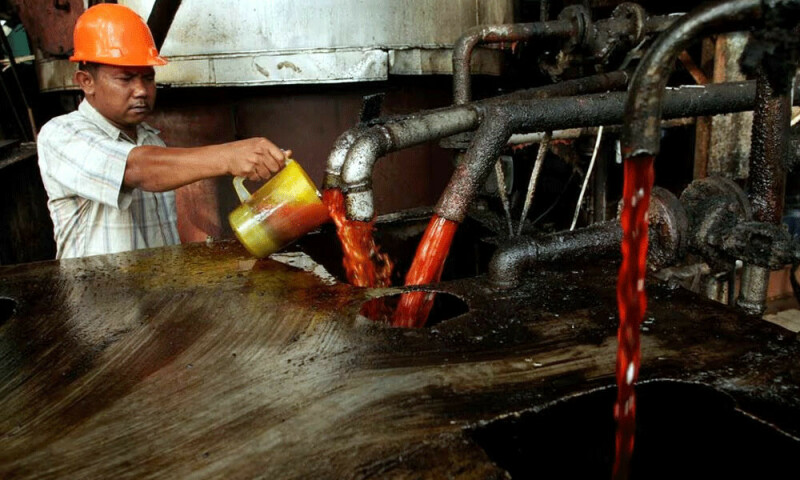KUALA LUMPUR: Malaysian palm oil futures hit a five-month high, surging more than 2% on Thursday’s close, driven by high demand from India and worries about production supply in major palm-producing countries.
The benchmark palm oil contract for December delivery on the Bursa Malaysia Derivatives Exchange rose 109 ringgit, or 2.7%, to 4,152 ringgit ($1,002.90) a metric ton at closing, the highest close since April 15.
The contract has risen 11% over the last seven sessions.
Robust demand from India, driven by domestic consumption and restocking prior to the festive season, is keeping palm oil prices high alongside concerns about the stagnant to declining palm oil production in Malaysia and Indonesia due to current weather conditions, Marcello Cultrera, a grains, oilseeds and softs broker for SSY Global, said.
“As the northeast monsoon season approaches and the production cycle slows, there are growing worries about reaching a production peak in October.”
On Wednesday, the ASEAN specialised meteorological centre reported that wetter conditions are expected for most of the equatorial region between September 30 and October 13.
Malaysian palm oil futures extend gains to sixth straight session
Indonesia and Malaysia, the world’s largest palm oil producers, account for around 85% of the world’s exports.
Dalian’s most-active soyoil contract rose 1.19%, while its palm oil contract added 1.79%. Soyoil prices on the Chicago Board of Trade were up 0.93%.
“There has been weaker demand for biofuels in certain regions due to falling crude oil prices. As soybean oil is used in biofuel production, a decline in energy prices can reduce demand for soybean oil as a feedstock,” Cultrera said.
Palm oil tracks price movements in rival edible oils, as they compete for a share of the global vegetable oils market.
The ringgit, palm’s currency of trade, weakened 0.31% against the U.S. dollar, making the commodity cheaper for buyers holding foreign currencies.
Oil prices slumped on Thursday, reversing earlier gains, on news Saudi Arabia, the world’s biggest crude exporter, will give up on its price target in preparation for raising output.
Weaker crude oil futures make palm a less attractive option for biodiesel feedstock.

Source: Brecorder




























